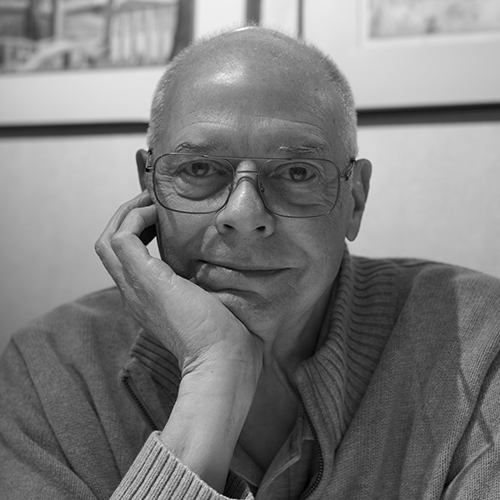

 |
 |
Tom Thomas is a writer with a career spanning forty years in publishing, technical writing, public relations, and popular fiction writing.
“My business now is to weave circumstance, happenstance, intention, and mischance into stories.”
Biography |
Science Fiction |
General Fiction |
Writing Craft |
Blog Archive |
Featured Work:
|
Tom’s Activities and InterestsPhotographyDitties and DoggerelWar by Other Means …Isshinryu KarateNAMI East BayThe Iron StableFollow me on Twitter |

|
By now we all—well, many of us—have seen stills from video surveillance on the Charlotte, North Carolina, light rail train where a hooded man rose up behind and stabbed a young woman who was sitting immersed with her phone and earbuds. Many people are focusing on the facts—visibly indisputable—that the man was black and the woman was white. They are also focusing on the facts—related in the story—that the man was an often-arrested-and-released criminal with a diagnosis of schizophrenia and the woman was a refugee from the war in Ukraine. People are further focusing on the follow-on footage of the passengers sitting around her looking away and moving off while she cowers and, as told in the story, bleeds to death. And again, the visible fact is that they are all black and apparently unconcerned, while she is young, white, blonde, and scared.
While those are facts—maybe most of them facts—in my view, they are barely relevant. These facts may be relevant to this story in this place and time, but they do not lead to any universal conclusion that I would take away from the story.
Many people think that if the man behind her had been white, there would probably not have been such an attack. They think that if the passengers around her had been white, they all—or at least some or one of them, or that the viewers of the video themselves—would have rushed to her aid, called for help, and tried to stop her bleeding.
But still, those distinctions are barely relevant.
The main takeaway—in my mind indisputable—is that we do not live in a safe world. We never have lived in such a place. Yes, there is more isolation and disconnection in a modern, urban society, where many of us have more friends who are names and faces pixelated on a screen than met in real life. Yes, there is now more class, race, and gender envy and distrust than before, when we all had to live and work together, interact and trust one another. But a hundred years ago you could even then be stabbed on a train and watch the perpetrator walk off into the crowd. The difference today is that there are full-color video cameras recording from different angles in every car. And there are relatively easy ways to obtain that video footage and spread it around the world through social media.
The terrible truth is that Iryna Zarutska left a horrible world where bombs were falling every day, arrived in a country she thought was quiet and safe, and relaxed when she sat down on that train. She put in her earbuds, turned on her phone, and ignored her surroundings. Although, to tell the truth, even if she had held her head up and was looking left and right, she still might not have seen the attack coming from behind. But then, she might have sensed the rustling of his clothing.
I have always been a largely passive individual. I am big and have a relatively sharp and forbidding face; so people tend to leave me alone, maybe even fear me a little. But still, when I went to college, I took a course in karate. That was probably more inspired by James Bond movies than by any sense of fear or danger. But I stuck with it for four years and got my black belt. I never had any desire to attack or dominate anyone, but it made sense to me on a primal level that I should know how to defend myself. Passive as I was, I would not be a victim. And ever since I was twelve years old I have carried a pocketknife, more recently a model that could be opened one-handed and had a frame lock against closing on impact—the sort of knife people call “tactical.”
I use that word, “tactical,” a lot in my thinking. Not because I believe everyone is mean, antagonistic, and dangerous. But because some of them are, and I don’t want my day ruined when I come across them.
So, my analysis of the young woman in the story is that I wouldn’t take a seat where someone could get behind me, let alone if someone was already sitting there. If no such protected seat were available, I would stand, so that I had freedom of movement. I wouldn’t immerse myself visually and aurally in my phone or a laptop, not without keeping some part of my awareness spread wide and occasionally lifting my head and looking around. And this would apply not just in a train car filled with people of a different class and race, but anywhere in public. Yes, fifty years ago I used to relax on the BART train with a book, but I would still occasionally look up and note the people around me. If any of them was acting suspiciously—being too agitated, too alert, too casual, too anything—then I would close the book and pay attention. That’s situational awareness.1
It‘s unfortunate that we have to do more of this today. It’s unfortunate that the young Ukrainian woman in the story thought she had come to a safe place. But no place has ever been so safe that we can zone out in unprotected spaces. In the first chapters of Dune, young Paul Atreides is warned never to sit with his back to a door. And in the final chapters, he tells his old Mentat master, “The universe is full of doors.”
There’s a reason why we turn to look for a rustle in the grass or a hint of movement in our peripheral vision. It kept our distant ancestors alive. The same reflex keeps us alive today.
1. And you might conclude that I am “blaming the victim” here. That she has a right to relax in a public space and that society should be made safe for her to do so. But the hard reality is that she, you, or anyone can make themselves safe—or safer—by adopting the principle of caution. What we can’t do is control the potential actions of the people around us. The situation is yours and mine to adapt to, not for someone else to control.
Comment on this post at Blogspot.com.
Subscribe to my Facebook author's page by clicking “Like” at Thomas T. Thomas.
My Favorite Novels About Time Travel
This is the official home page of Thomas T. Thomas, the fiction writer. Member of The Authors Guild and Science Fiction and Fantasy Writers of America. As there are a number of other Thomas T. Thomases alive and active in the world, please see the Biography sidebar “What’s the Middle ‘T’ Stand For?” to make sure you have found the right one.